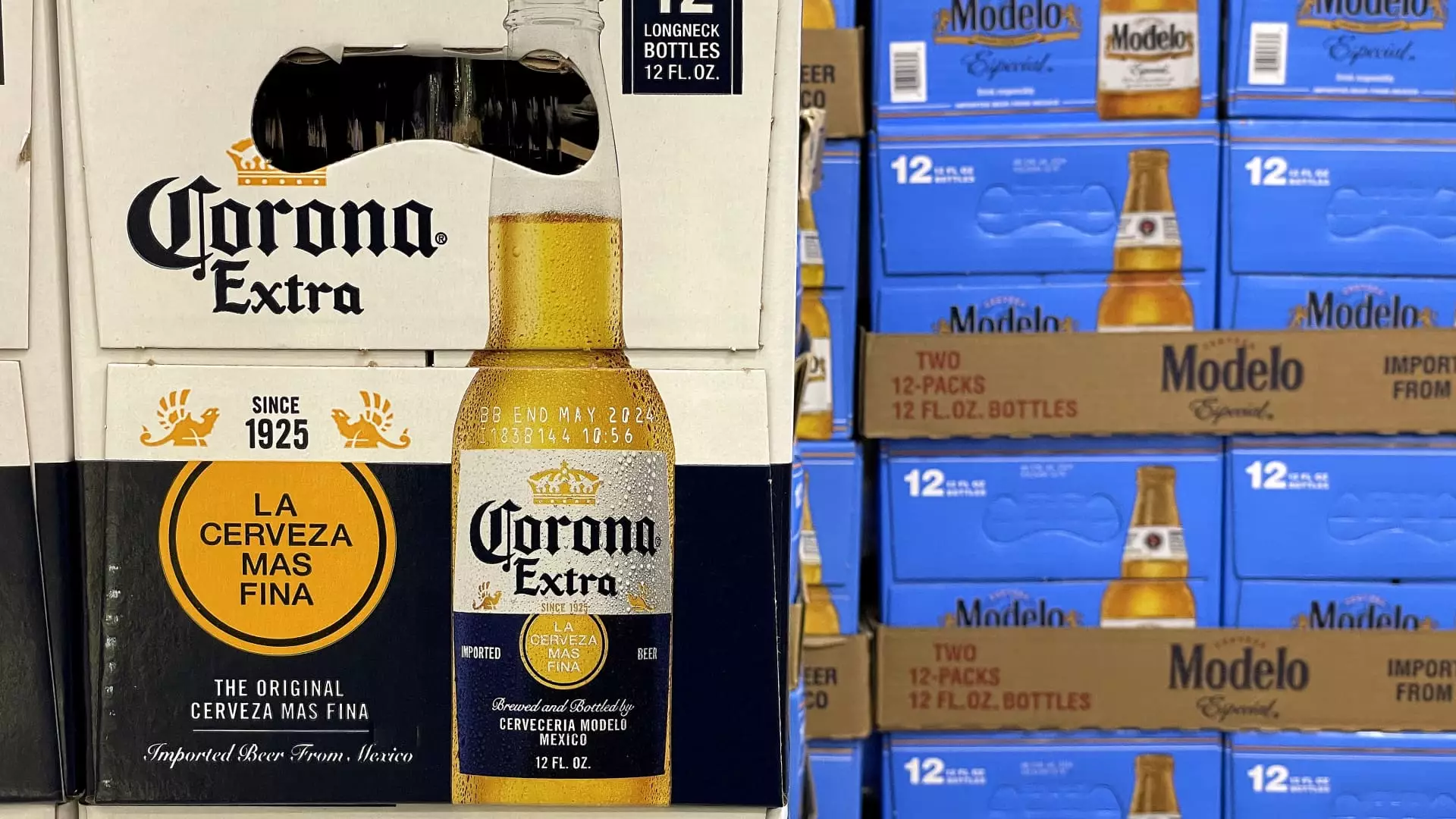The recent quarterly results from Constellation Brands have raised serious questions about the stock’s viability within investment portfolios. With flat net sales and earnings that fell below expectations, stakeholders must consider the broader implications of these figures, particularly in a market that has seen considerable shifts in consumer behavior towards beverage alcohol.
For the three months ending November 30, Constellation Brands reported net sales of $2.46 billion—significantly below the forecasted $2.53 billion. Adjusted earnings per share (EPS) for this fiscal quarter stood at $3.25, just a penny short of the previous year and below analyst predictions of $3.31. Such results prompted a reevaluation of the stock’s role in investment strategies, especially considering the forecasted figures have become increasingly grim.
The company’s beer segment, which has been historically dominant due to popular brands like Modelo and Corona, did witness some success with a noted 3% increase in year-over-year sales. However, this performance fell short of broader market expectations, raising flags about the resilience of Constellation’s flagship offerings. Moreover, the wine and spirits division exhibited a staggering decline in sales—down 14% year-on-year—aptly highlighting the struggles afflicting this particular category within the company.
There is an air of uncertainty surrounding the beverage market as a whole, exacerbated by changing consumer preferences. The emergence of alternative options, particularly cannabis-based products, has posed new challenges to traditional alcohol sales. Additionally, the impact of GLP-1 weight loss drugs has led some to speculate that their popularity is shifting consumers away from alcohol consumption altogether.
This dynamic impacts not just Constellation, but the entire industry, as companies like Anheuser-Busch InBev and Molson Coors also confront similar pressures. The competition is fierce and ever-evolving, while Constellation appears to be not just losing ground in the wine-and-spirits segment but struggling to maintain momentum even within its core beer business.
Broader Economic Influences
The company faces mounting challenges tied to broader economic forces, with inflation placing considerable strain on consumer spending behaviors. Economic apprehension has led to decreased disposable incomes, meaning consumers may now be prioritizing essential expenditures over discretionary ones like alcohol and dining out. In this climate, even established brands are vulnerable, and Constellation may be among those hardest hit.
Moreover, political uncertainties compound these economic challenges. The potential for shifts in immigration policies and trade tariffs under an incoming presidential administration injects chaos into the already volatile market landscape. Investors are often wary when external pressures like policy changes loom over economic stability; these fears are evident in Constellation’s stock price, which plummeted over 16% in a single trading session, reaching a low near $180.
Revised Guidance and Future Confidence
In light of these recent developments, Constellation’s management has prudently revised its full-year guidance. The target range for adjusted EPS has been lowered to between $13.40 and $13.80, while net sales projections have reduced growth expectations from 4-6% to a mere 2-5%. Particularly alarming is the anticipated decline in the wine and spirits market, which could shrink by 5-8%.
Although some analysts suggest that the company could generate positive cash flow with estimates now hovering between $1.6 billion and $1.8 billion, such positive markers seem inadequate to counterbalance the broader bearish sentiment. The overarching takeaway from the revised guidance indicates a company undergoing significant restructuring, potentially seeking to divest its underperforming wine and spirits business in a bid to refocus on its more profitable beer sector.
As Constellation Brands struggles with disappointing quarterly outcomes and anticipates a challenging year ahead, investors must weigh the risks and potential rewards associated with retaining the stock in their portfolios. With weakened performance indicators across key segments and the external pressures of economic and political variables, it may be prudent for investors to consider re-evaluating their positions.
The landscape has shifted—and while Constellation’s beer franchises still show potential, the overarching struggles of its wine and spirits segment highlight the complexities of the market. In this unpredictable economic environment, investors may find that holding onto such a volatile stock could be more perilous than advantageous. Adaptation and vigilance will be essential as they navigate the turbulent waters of the beverage industry.


Leave a Reply